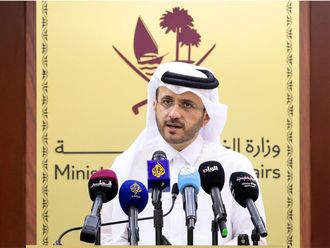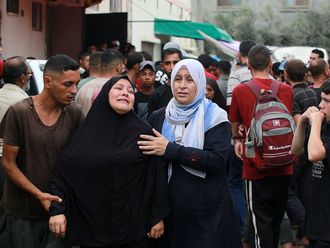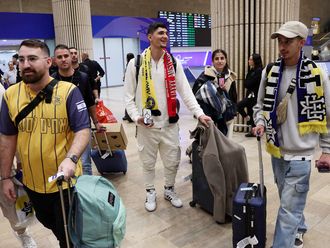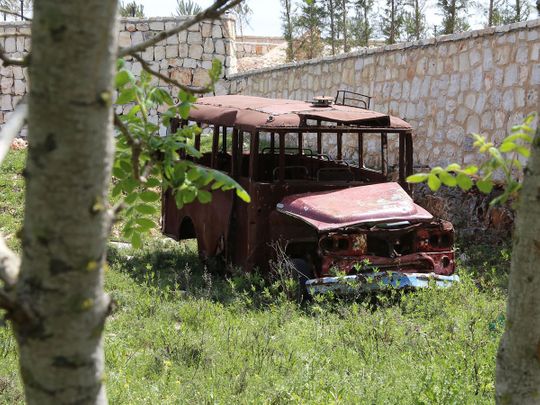
Damascus: Forty-seven years ago, Lebanese Maronite Christian leader Pierre Gemayel suffered an assassination attempt at the gates of a church in the Christian Ayn Al Rummaneh neighbourhood of Beirut.
He blamed it on Yasser Arafat and the Palestinian Liberation Organisation (PLO). Hours later, Gemayel’s Phalange Party militants opened fire on a bus carrying Palestinians to the Tel Al Zaatar camp, passing through Ayn Al Rummaneh at Mar Maroun Street. Twenty-seven passengers were killed, sparking the Lebanese Civil War.
That was on April 13 1975. Nearly half a century later, so much has changed in Lebanon, and yet, so much remains hauntingly the same. Although many of its principal actors are long dead — like Gemayel, who died in 1984, and Arafat, who died in 2004 — others remain very much alive and active in Lebanese politics.
Survivor 1: The Gemayels
Pierre Gemayel’s son Bashir led Christian militants against the PLO, and was elected president of Lebanon in August 1982. Less than a month later, he was assassinated on September 14 by a member of the Syrian Social Nationalist Party (SSNP).
Leadership of the Lebanese Phalange was bequeathed to his brother Amin, along with that of the Maronite Christian community. On September 23, 1982, Amin was elected president of Lebanon. At 80, he is now retired and came out with a memoir in 2020.
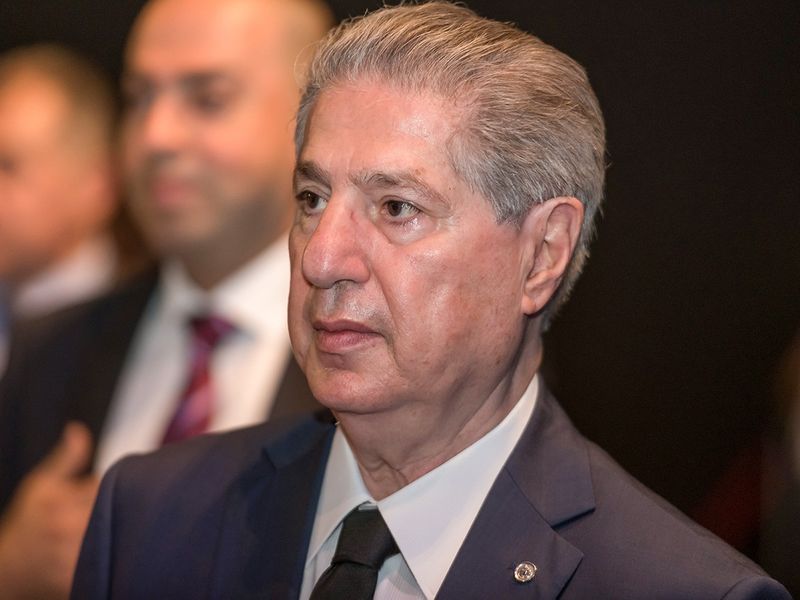
Their sons have since taken over as leaders of the Phalange. Amin’s son, Sami (42) is running for parliament next May, and so is Bashir’s son, Nadim (40).
Survivor 2: Samir Geagea
Elsewhere in the Maronite community, leader of the Lebanese Forces Samir Geagea is preparing his parliamentary list, running on a campaign to clip the wings of Hezbollah and end Iranian hegemony in Lebanon.
Although hailing from the village of Bshiri in Mount Lebanon, Geagea was born in Ayn Al Rummaneh in 1952. When the war began in 1975, he interrupted his medical studies at the American University of Beirut (AUB) to take up arms with the Gemayels. He rose in the ranks of the Christian battlefield, becoming leader of the Lebanese Forces in 1986.
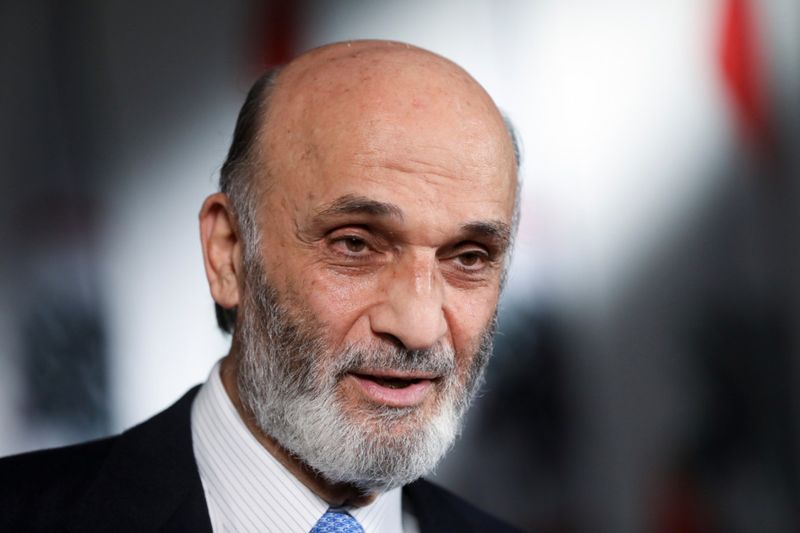
Four years later, Geagea was involved in an inter-Christian war against then-prime minister Michel Aoun, known as the War of Elimination. They destroyed much of East Beirut, which had been spared much of the violence during the war. That conflict ended with the Syrian Army overrunning of East Beirut and Aoun’s exile to France. In 1994, Geagea was arrested, and spent 11 years in jail.
He was released after the 2005 assassination of Prime Minister Rafik Hariri. Since then, his party has assumed posts in nearly every government, and in 2018, won an impressive 15 seats in the Lebanese Parliament.
Geagea, now at 70, is also competing in the May elections, promising to restore sovereignty to Lebanon and break the hold of Hezbollah. Last October, his supporters clashed with Hezbollah — also in Ayn Al Rummaneh — triggering a mini-war on the streets of Beirut, in which seven Hezbollah supporters were killed.
Survivor 3: Michel Aoun
Perched in the Baabda presidential Palace is his arch-rival, President Michel Aoun (89), another ranking survivor of the Civil War. After waging a “war of elimination” against Geagea he launched a “war of liberation” against the Syrian Army in January 1990, which eventually led to his ouster from Baabda Palace.
He had served as a disputed prime minister since September 1988, although by a gentlemen’s agreement, the premiership of Lebanon is reserved exclusively for a Sunni Muslim.
When the war started in 1975, Aoun was serving as commander of the Second Artillery Corps in the Lebanese Army. At 49, he became the youngest officer to rise to the position of Army Commander, which he held until being appointed premier in 1990.
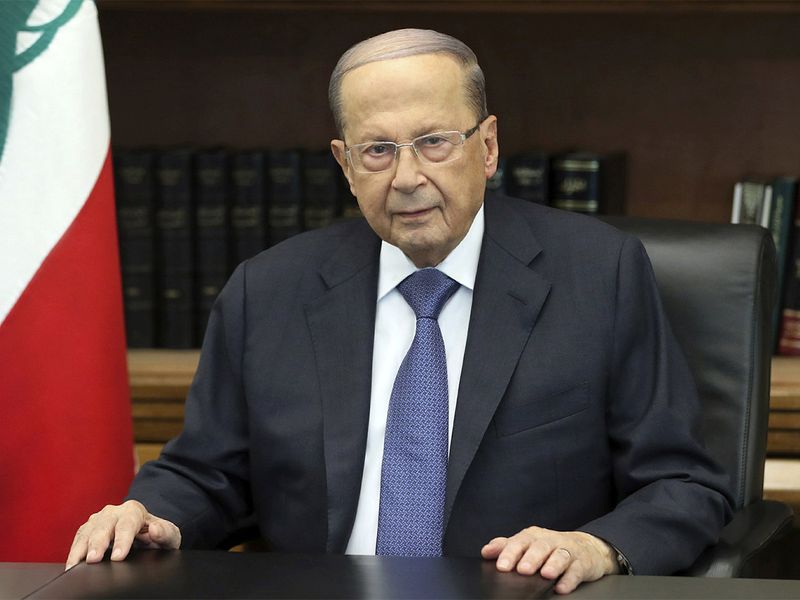
Aoun returned from exile in the aftermath of the Hariri assassination, leading the Free Patriotic Movement (FPM). In February 2006, he signed a memorandum of Understanding with Hezbollah chief Hasan Nasrallah. In exchange for agreeing to protect the arms of Hezbollah, Nasrallah promised to make Aoun president, a post he had coveted since the 1990s.
Aoun lived up to his part of the bargain during the 2006 war with Israel and 10 years later, Nasrallah secured the presidency for him. His term ends next October.
His son-in-law and political heir Gibran Bassil is leading the FPM in the May elections. During the years 2018-2022, the Aounists held the lion’s share of seats in the Lebanese Parliament (a total of 29). Bassil hopes to maintain that representation and has his eyes on succeeding his father-in-law as president next October.
Other survivors
On the opposite end of Lebanon’s confessional landscape stands two other leaders, both veterans of the Civil War.
One is Nabih Berri (aged 84), Lebanon’s long-serving speaker of Parliament. A ranking leader of the country’s Shiite community, he took over command of the Amal Movement after the 1978 disappearance of its founder Imam Musa Al Sadr during a trip to Libya.
Berri led Amal militias throughout the most acute phases of fighting, taking up arms against the Israelis in south Lebanon and rival Lebanese militants in Beirut. He allied himself with Hezbollah and the Syrians and in 1992, was elected speaker of parliament, a post that he still controls today, 30 years later.
While neither Samir Gagegea nor Michel Aoun will be personally running for parliament in May, Nabih Berri has announced his candidacy. He is leading a list of Amal figures, which includes two former MPs charged with “criminal negligence” that led to the 2020 explosion at the port of Beirut.
Berri is expected to remain at his post as speaker of Parliament in May.
His ally during the upcoming elections will be his long-time friend Walid Jumblatt, another civil war veteran, aged 72. Jumblatt has led Lebanon’s Druze community and the Social Progressive Party since the assassination of his father Kamal back in March 1977. He too has an axe to grind with the Aounists and Hezbollah.
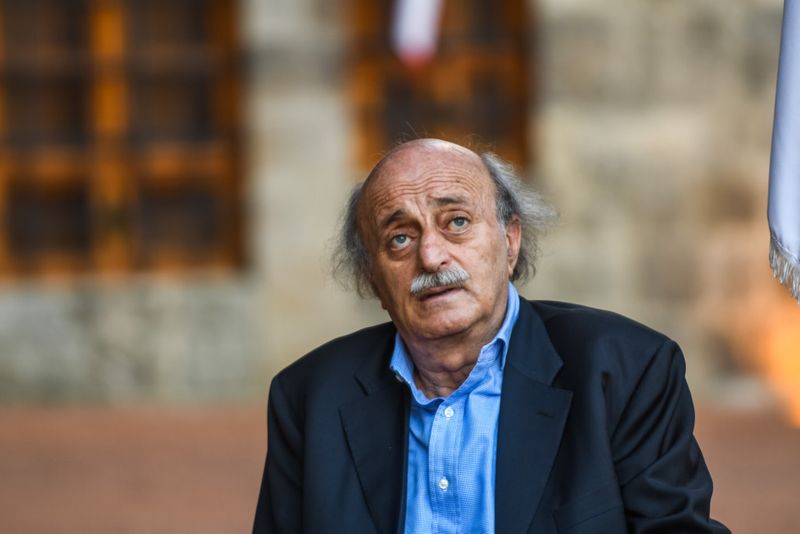
Last Survivor: The Ayn Al Rummaneh Bus
The last standing unlikely survivor is the bus that was torched on April 13 1975. A 1958 Dodge, it was being driven by its owner Mustapha Hussein on that fatal day, where he was shot twice in Ayn Al Rummaneh.
Hussein gave the bus — reportedly for free — to another driver, seeing it as a bad omen. It eventually ended up in the hands of a third person named Sami Hamdan, who hid it for five years.
When the fighting ended in 1990, Hamdan put the bus on display at every anniversary of the Civil War. It was often accompanied by a slogan that read: “Wipe it from your heart and it won’t happen again.”
The 62-year-old vehicle, which doesn’t work anymore, is parked in a farm in the town of Choukine in Al Nabatiya, South Lebanon.
Lessons not learnt
Looking back at the civil war, AUB professor Hilal Khashan recalled: “Civil wars bring out humanity’s worst qualities. When they end, people usually learn their lesson and ensure to not to let them occur again. Unfortunately, the Lebanese people’s collective consciousness did not integrate new values that would have allowed establishing a modern political system to avoid the pitfalls of confessional politics.”
Speaking to Gulf News, he added: “Ironically, many Lebanese people endorsed the civil war to reclaim Lebanon’s sovereignty and neutrality in regional politics. Today, their leaders are openly allying themselves with regional proxies whose allegiance lies outside Lebanon.”


